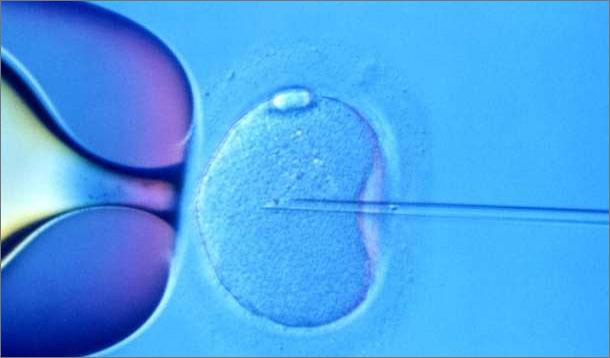
Science has a habit of outpacing ethics. Back in the '70s babies born out of petri dishes seemed off the wall and morally unimaginable. Fast forward several decades and more DNA tinkering.
The latest involving a third party's DNA in cases where the biological mother and father have a "a genetic risk of incurable conditions like muscular dystrophy" to produce a healthy embryo.
Previously this process was forbidden, according to an article in the UK Telegraph, but it may be legalized as early as next year by UK health secretary, Jeremy Hunt. The public hearing will question whether the clinical benefits of such a procedure outweigh any ethical concerns.
Aside from the moral implications of modifying a human embryo, the technique could affect the child's identity and raise a legal quandary about the rights of any third-party donor.
If Mr Hunt allows the maverick fertility treatment, Britain would be the first country in the world to allow human trials.
"[The genetic modification of the egg] is uncharted territory," Lisa Jardine, chair of the Human Fertilisation and Embryology Authority (HFEA), told the Telegraph. "I feel very strongly that once we have genetic modification we have to be damn sure that we are happy, because this is not about us. This is not about our children. It's not even about our grandchildren. It's about many generations down the line what the consequences might be."
According to the article, as many as one in 200 British children is estimated to have some form of mitochondrial disease, with many never manifesting the condition. While an estimated one in 6,500 are left with severe medical conditions, including "muscular dystrophy and ataxia, a neurological condition affecting balance, coordination and speech."
Doctors would cut the nucleus from a mother's egg before fertilization and implanting it into a donor egg (nucleus removed), before continuing with traditional IVF. Damaged mitochondria could be effectively wiped out of the family line, while keeping the identity of the biological mother and father intact.
“For women who have been dealt the heavy blow of living with mitochondrial disease, the prospect of bearing healthy children is of immeasurable value," said Dr Marita Pohlschmidt, of the Muscular Dystrophy Campaign in the same article. "We believe that this technique could open up the possibility of motherhood untainted by the fear of passing on a painful, debilitating condition to their future children."
The Human Fertilisation and Embryology Authority public consultation takes place until December 7. Members of the public are encouraged to post their views on a dedicated website, as well as attend two public forums, in London and Manchester respectively.
Is this fertility treatment ingenious or immoral?